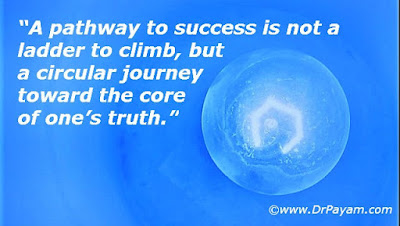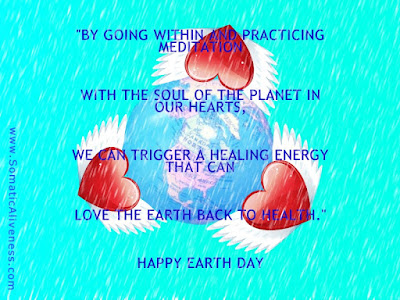For more articles by Dr. Payam, please click on the following link: https://drpayam.com/articles_and_book
Wednesday, March 25, 2015
Beyond the Circle of Our Everyday Life
For more articles by Dr. Payam, please click on the following link: https://drpayam.com/articles_and_book
Sunday, June 22, 2014
A Gay Perspective on the Earth’s Lament
Given that mental health and sociopolitical factors are deeply intertwined, mental health providers need to consider the rise of addiction, depression, anxiety, and suicide in our current society not only rooted in the individual psyche but also the sociopolitical factors. There are many reasons why people cannot optimally thrive, and sociopolitical factors are one of them.
Many LGBTQ people who participate in psychotherapy often feel ashamed for not being able to adjust to a dysfunctional and homophobic society and thinking there is something wrong with them for feeling anxious or depressed. Often the work in therapy is focused on understanding the negative impact of growing up in a dysfunctional family and not enough focus on the impact of living within a corrupt political structure. This does not mean psychotherapists need to turn the therapy session into a political discussion and impose their political views on their clients. Yet, therapists need to consider that people develop many psychological problems in societies where they are alienated from nature, each other, and themselves.
© Payam Ghassemlou, MFT, Ph.D., SEP, is a psychotherapist (www.DrPayam.com), Somatic Experiencing Practitioner (www.SomaticAliveness.com), writer (https://www.drpayam.com/articles_and_book) ,and artist
Licensed Marriage and Family Therapist online anywhere in CA & Florida.
Sunday, December 8, 2013
My Coming Out , A Journey Held by the Earth
By Payam Ghassemlou MFT, Ph.D.
There
was a time I was struggling to make sense of being queer. I recall feeling
shame for being different. It was a lonely and confusing period not being able
to “act straight” and flow with the mainstream. At the time, I needed a refuge
from my oppressive homophobic environment. Sometimes, I escaped into the safety
of my imagination, and I saw myself as a river on a sacred land. As a river, I could
move freely and flow into an ocean. The image of a flowing river felt
liberating in my body, and it was a delightful contrast to feeling stuck in the
closet of shame. I was too young to realize through such an image I was
experiencing movement as an antidote to my oppression. I am grateful for the
offerings of my imagination during such a painful period.
In
my imagination, I often saw myself on a sacred ground. The concept of resorting
to a sacred land was something I learned growing up. When faced with
overwhelming feelings, some people in my family found peace by visiting sacred
locations on the Earth. That is what my grandmother did. She traveled to Mecca after
the loss of her husband to experience relief. The holy land made it easier for
her to find solace. I thought about finding my version of a sacred land, a safe
zone, free from judgment to locate my gay self and arrive at a place of
self-acceptance.
The
place that eventually offered me a refuge, and connection with other queer
people was not in Mecca. It was a dance floor inside a gay bar. For an isolated
gay youth starved for love and struggling to breath air that was not
contaminated by homophobia, a dance
floor was his sacred site. I felt safe there. Living in a world that is tainted
by racism, sexism, homophobia, transphobia, and xenophobia, any place that
offers a sense of safety for marginalized people is sacred. In today’s perilous
world, such a feeling is sacrosanct. In June of 2016 when I heard about a mass shooting inside
Pulse, a gay nightclub in Orlando, Florida, I felt devastated for those
innocent queer souls who lost their lives. Perhaps many of them were there to
find safety and connection just like I had done when I was in their age.
My
coming out was not only an inner journey of embracing my gay essence, but also
a journey that is held by the Earth. At the time, I did not have the
understanding that the Earth held space for me to come out. All the resources
that helped me make sense of being queer were located on the surface of the
Earth. For example, a coming out group, a dance club, a psychotherapy office, a gay Pride Parade, the LGBT Center, and the local gay bookstore can all be
considered sacred locations. Any location that one’s authentic self emerges
becomes blessed with a powerful transformational energy. The Earth has been a
host to countless, meaningful, and transformational experiences which has
contributed to the sacred nature of the Earth.
The
Earth needs to be included in my coming out story because I am never separate
from her. In fact, my body is made up of elements that belongs to the Earth.
Given the current consumeristic mentality and the ecological crisis, I welcome
any opportunity to bring awareness to “the cry of the Earth.” We can no longer
live life unconsciously, given how much we know about the state of the planet.
It makes me feel sad to witness humanity replacing fish in the oceans with
plastic, rivers with nuclear waste, forests with urban housing, clean air with
pollution, and turning the ecosystem
into a garbage bin. As I painfully witness ecocide on Earth, I feel the urgency
to respond to her cry.
My
coming out story is part of the larger story of humanity’s movement toward love
and liberation. We all want freedom to love. It hurts deeply to shame a human
being for such a natural desire. Throughout human history and in most places on
the Earth, countless numbers of innocent LGBT people have lost their lives
through hateful acts; therefore, I consider the Earth as one giant shrine. The
Earth has been witnessing humanity’s story, and I witness her mistreatment and
exploitation of her natural resources.
As
a gay man, I honor my gay ancestors who had strong bonds with all life on
Earth. As a LGBTQ community, I hope we relate to the Earth as our shaman
ancestors did. Our survival depends on treating the planet as a sacred being in
need of love. As the Earth’s holocaust is taking place, we as queer people can
play a major role in stopping it. The LGBTQ community suffered their own
version of a holocaust when the AIDS crisis took many lives of our people.
Triumphs like the way we took care of our dying people during this crisis, and
how far we have come in our struggle for equal rights are truly a reflection of
how courageous we are as a community. Our courage can continue to stop
forces of greed that are destroying our echo system. There's still time to love
the Earth back to health.
© Payam Ghassemlou, MFT, Ph.D., SEP, is a psychotherapist (www.DrPayam.com), Somatic Experiencing Practitioner (www.SomaticAliveness.com), writer (https://www.drpayam.com/articles_and_book) ,and artist
Licensed Marriage and Family Therapist online anywhere in CA & Florida.
Sunday, November 24, 2013
A Brief Reflection on Climate Change
Here is the link to Love the Earth Meditation:
© Payam Ghassemlou, MFT, Ph.D., SEP, is a psychotherapist (www.DrPayam.com), Somatic Experiencing Practitioner (www.SomaticAliveness.com), writer (https://www.drpayam.com/articles_and_book) ,and artist
Licensed Marriage and Family Therapist online anywhere in CA & Florida.
Sunday, October 28, 2012
Invisible Wounds
© Payam Ghassemlou, MFT, Ph.D., SEP, is a psychotherapist (www.DrPayam.com), Somatic Experiencing Practitioner (www.SomaticAliveness.com), writer (https://www.drpayam.com/articles_and_book) ,and artist
Licensed Marriage and Family Therapist online anywhere in CA & Florida.
Saturday, May 26, 2012
Mindfulness for LGBTQ People
© Payam Ghassemlou, MFT, Ph.D., SEP, is a psychotherapist (www.DrPayam.com), Somatic Experiencing Practitioner (www.SomaticAliveness.com), writer (https://www.drpayam.com/articles_and_book) ,and artist
Licensed Marriage and Family Therapist online anywhere in CA & Florida.
Saturday, March 31, 2012
Practices for Healthy Living
By
Payam Ghassemlou MFT, Ph.D.
Caring for the Planet
Rumi once said, “Whosoever knoweth the Power of the Dance dwelleth in God.” You can use dancing as one of your spiritual practices or just do it for the joy of it. Dancing is a good way to stay physically active and have fun at the same time. Your inner critic might try to convince you that you can’t dance and discourage you from trying. Just ignore the critical inner voice and dance.
Journaling








